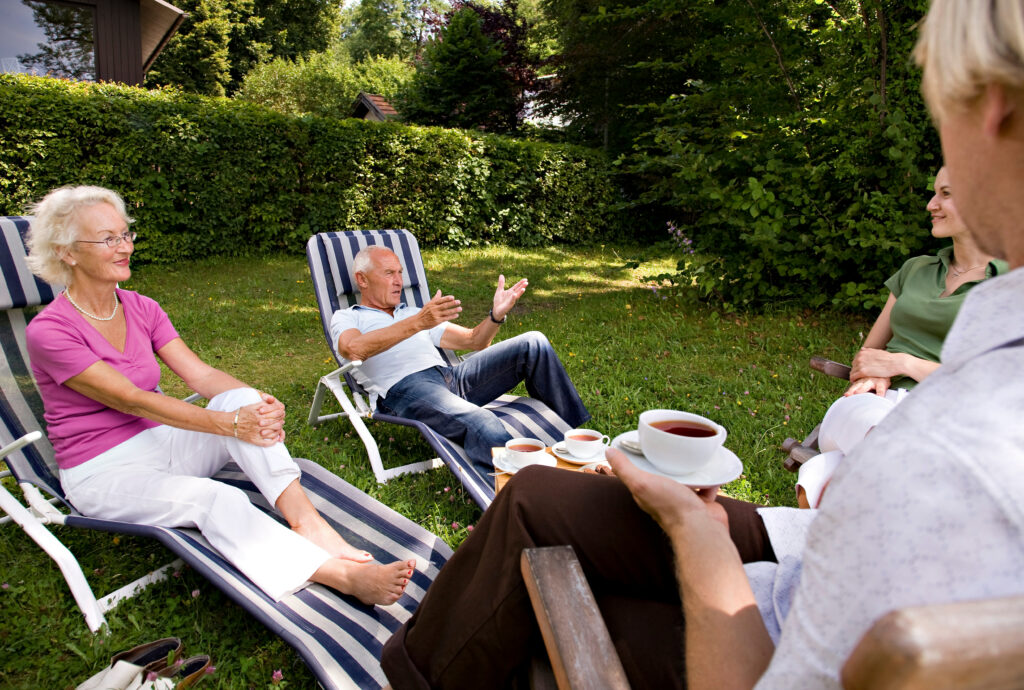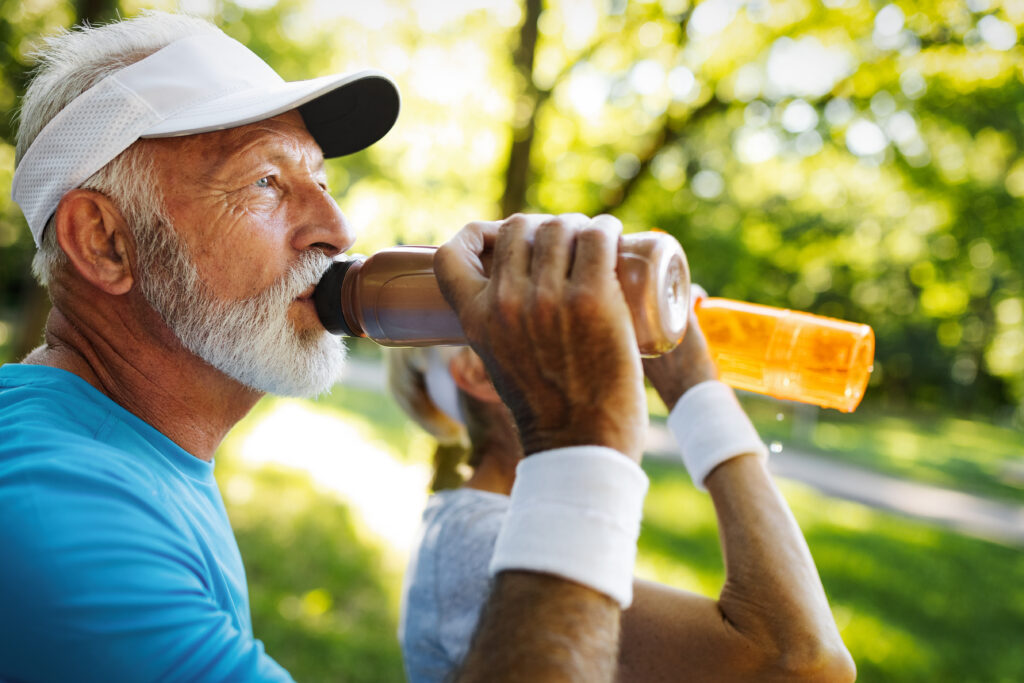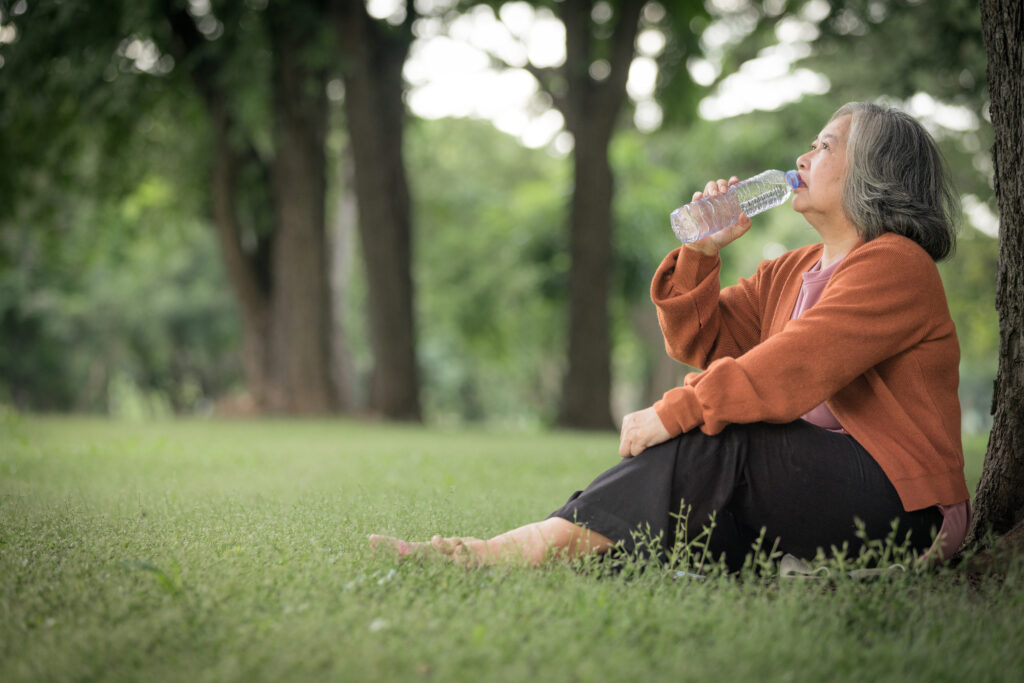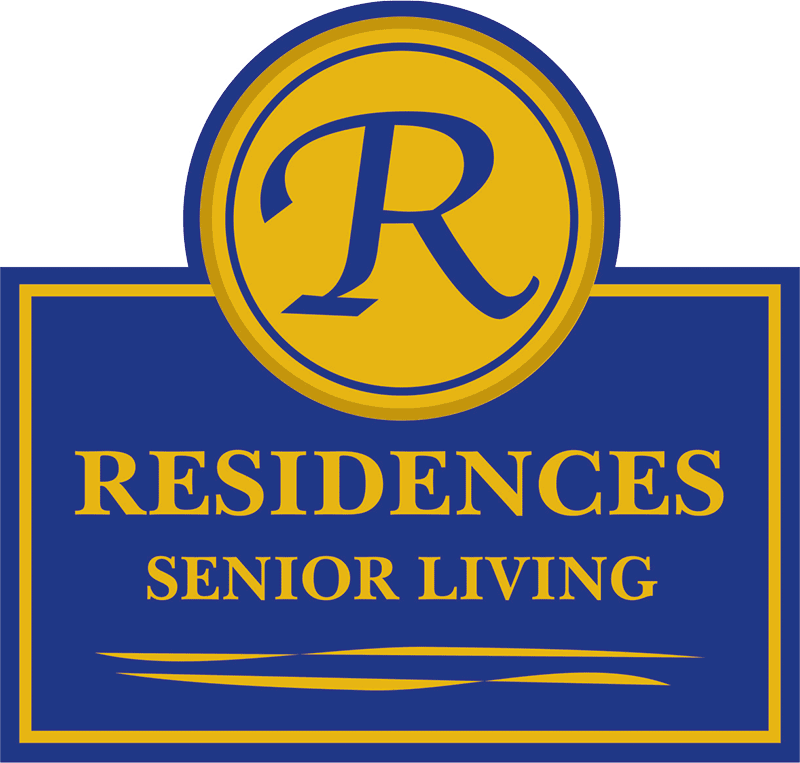It’s summer! We’ve been looking forward to the warmth of a sunny day and it’s finally here! It’s time for outdoor get-togethers and a good time for families! You’re planning to attend a reunion in a park; your grandson’s graduation party is being held in their backyard. You’re going with a friend to a farmers’ market or maybe you’re planning a vacation to a resort area or camping with family in an RV. Maybe you’ll be spending a simple season at home. Summer days can quickly become hazardous when temperatures and the Heat Index (temperature plus humidity) are high. You’ll want to be mindful of daily conditions. So don’t forget the most important plan of all—what you’ll need to protect your good health!
Understanding your body’s response to extreme conditions is your first step. You’ll be more readily alerted to early warnings of a possible problem. If you are older and have health a condition it is especially important to be cautious. You may have coped well with heat when you were younger, but the fact is that older adult bodies do not adjust as well to sudden temperature changes. Health conditions and medications affect the body’s response and may even alter the body’s ability to control temperature or sweat.
Checking the weather in advance of the day is more than an ounce of prevention. It’s good to check it regularly during the day you’re outdoors for heat warnings and especially the heat index, which considers not only air temperature but also humidity levels to determine the “real feel” of heat. Dress for the weather with lightweight, light-colored, loose-fitting clothing. Wearing more natural fabrics like cotton are best; synthetic fabrics should be left in the closet during summer!
Tips to remember when you’re outdoors include getting into shade as much as possible and drinking plenty of liquids including water, fruit or vegetable juices or drinks that have electrolytes. If your doctor has recommended that you limit liquids, ask what you should do when it is very hot. Avoid alcohol and caffeinated beverages—if you like iced tea, drink herbal brews. Avoid a lot of physical activity—yes, gardening, even pinching the petunias or tomatoes can be too much when it’s hot, sunny or not! Be mindful of getting overheated—it comes on quickly!

Grocery shopping, appointments, visits are best scheduled during non-rush hour times. Your goal is to get in and back out quickly and avoiding crowds. Try to limit these activities when the heat is on. If you normally rely on public transportation, when it’s hot, try to find a friend or family to transport you to your destination—do not stand outside to wait for a bus on a hot day. If it’s not possible to find a ride, reschedule your errand for another day.
But, if your home is hot and you don’t have air conditioning, consider going to a mall, library, senior center or someone’s home that has air conditioning, especially mid-day and afternoon. Again, ask a friend or family for a ride. During the evening when the temp starts to cool down, that’s the time to open windows and use your fan. Summer without air conditioning is not the time to bake in the oven. Keep windows closed during the day, keep curtains, shades or blinds drawn.
How do you know the heat is getting to you? What are heat-related symptoms/illnesses? What should be done?
Watch for sudden dizziness called heat syncope—it happens when you are active in the sun. If you take a beta blocker for a heart condition or are not acclimated to hot weather, you are more likely to feel faint. Get to a cool place immediately, drink water, put your feet up to make the dizzy feeling go away, and continue to rest.
Heat edema—occurs when you are hot and your feet and ankles swell. Put your feet up, stay in a cool space and check with your doctor if the swelling does not reduce.
Heat exhaustion occurs when your body cannot keep itself cool. Your body temperature may be normal but your skin may feel cool and clammy. You may be thirsty, feel dizzy, weak, lacking coordination, nauseous and may sweat a lot. Rest in a cool space, drink plenty of fluids, and monitor your condition. Heat exhaustion can lead to heat stroke, which is a medical emergency.

Heat stroke requires immediate medical attention. The body’s temperature may rise to 104 degrees. Skin may be flushed, there may be a weak pulse or a strong rapid pulse; fainting, dizziness, confusion, sweating, thirst may be additional symptoms. Move immediately indoors, begin to cool the body with cool clothes, bath or sponge off with cool water, shower, and fans until you can reach emergency care.
Heat cramps are painful tightening or spasms of muscles in the stomach, arms or legs. Get into a cool space, drink plenty of liquids especially those with electrolytes. These usually occur with too much activity in the sun or heat.
Heat rash is a skin irritation from sweating causing small blisters that look like tiny pimples on the skin. There may be itching or a prickly pain. Keep the area dry, stay in cool areas, use a powder to relieve.
What health conditions raise the risk for older adults to suffer heat-related illnesses?
- Cardiovascular, lung, or kidney diseases raise the risk for older adults when the weather is extremely hot.
- Medications such as diuretics, sedatives, tranquilizers and some heart and high blood pressure medications that make it more difficult for the body to cool itself.
- Changes in skin that occur with aging.
- Weight—whether over or under.
- Home is not air-conditioned.
- Drinking alcoholic beverages.
- Dehydration, not drinking enough fluids.
Knowing your personal risks, the way older bodies respond to heat, signs and symptoms of heat-related illness, what to do in case you experience symptoms—all of these add up to prevention of heat problems and emergencies. You know what to do, what not to do, so go ahead—have a great and safe summer this year and every year!

P.S. Senior Living—It’s One of the Safest, Coolest Decisions to Make for All Seasons
It’s always cool inside, there are always cool activities every day, there are cool outside areas to stroll or sit or garden, our bus is air-conditioned and goes on cool excursions. Best of all, our nurses are cool, and there’s always one available 24/7 to monitor any health changes for residents. Find out more about the benefits of beating the heat and leading a real cool life when you choose senior living! Schedule your tour this summer. You’ll be warm and cozy for Fall and winter, but that’s another tip sheet!
